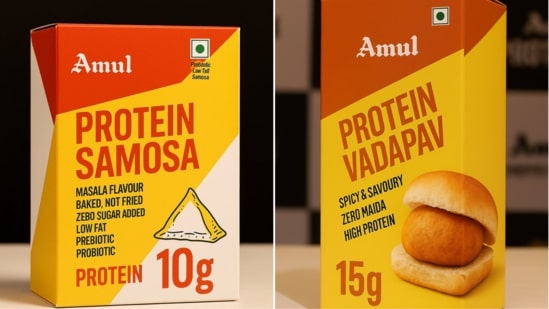Is Amul trying to tackle India’s growing protein deficiency? In recent months, the iconic dairy brand has rolled out a range of high-protein offerings — including Amul Protein Lassi and Amul High Protein Kool Coffee — each packing at least 10 grams of protein. These launches have quickly found favour with fitness enthusiasts, who often seek budget-friendly and convenient sources of protein.
Amul’s latest launch — a high-protein kulfi — set off a meme storm on social media this Saturday. While many celebrated the idea of indulging in a dessert that also contributes to their daily protein intake, others took the trend and ran with it. From joking about protein-packed cigarettes to imagining protein-infused hair growth serums, the internet had a field day speculating what Amul could “protein-boost” next.
“Amul is single-handedly making India fitter, leaner, and stronger – 10g at a time! From a protein-deficient nation to a protein-powered future!” read one post on X, imagining high-protein samosas from Amul.
‘Amul protein cigarettes’ amused smokers and non-smokers alike.
A petition to launch Amul protein vada pav?
Jokes about Amul adding protein in everything found their target audience on X
India’s Protein Deficiency: A Growing Concern
India is grappling with a significant protein deficiency crisis, as highlighted by several national surveys. One of the most telling findings comes from the ‘Protein Consumption in Diet of Adult Indians: A General Consumer Survey (PRODIGY)’ by IMRB, which reveals that 73% of urban Indians have protein-deficient diets. Even more alarming, 9 out of 10 Indians do not meet their recommended daily protein intake.
The Indian Council of Medical Research (ICMR) advises a daily protein intake of 0.8 to 1 gram per kilogram of body weight. However, the average Indian falls short, consuming only about 0.6 grams per kg. This gap is attributed to a range of factors — from economic limitations and low public awareness to traditional carbohydrate-rich meals and the prevalence of vegetarian diets that often lack complete protein sources.



